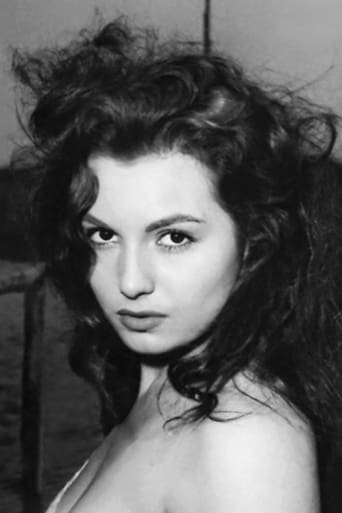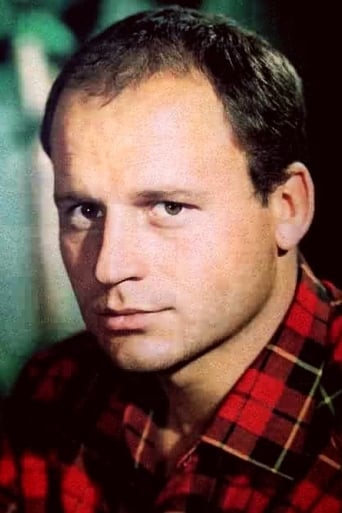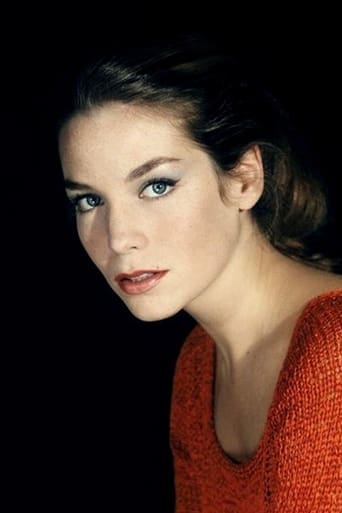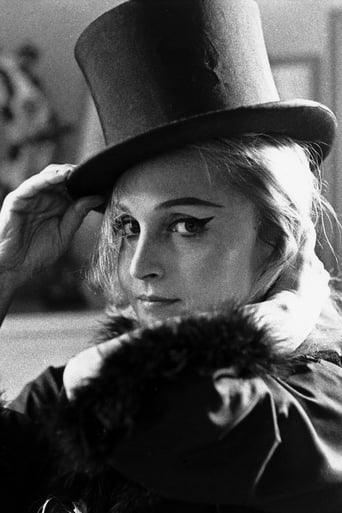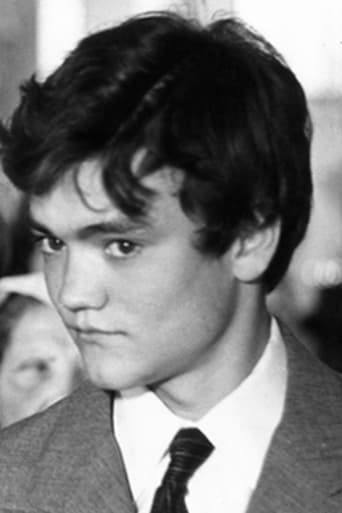Laikals
The greatest movie ever made..!
Senteur
As somebody who had not heard any of this before, it became a curious phenomenon to sit and watch a film and slowly have the realities begin to click into place.
Anoushka Slater
While it doesn't offer any answers, it both thrills and makes you think.
alexdeleonfilm
RO.PO.PA.G, 1963. Been waiting for years to catch up with this Nouvelle Vague curiosity item somewhere -- and finally did at the Cinemathèque in Paris. This French-Italian production from 1963 is comprised of four episodes directed by four acclaimed European directors: Roberto Rossellini, Jean-Luc Godard, Pier Paolo Pasolini, and Ugo Gregoretti. Its short title, Ro.Go.Pa.G., borrows the initials of their names. This compendium Omnibus film by the four prestige authors, consists of four short films, in order: RO. Rosselini's 'Chastity' ('Illibatezza') -- GO. Godard's 'New World' ('Il Nuovo Mondo') -- . PA. Pasolini's 'Curd Cheese' ('La Ricotta') -- and G. Gregoretti's 'Free Range Chicken' ('Il Pollo Ruspante'). Viewed on Friday night Dec. 27, 2013 at the Cinémathèque. Overall, Rogopag was a big disappointment.Rosselini, Part 1, started out great examining the psychology of the in-flight crew on a long distance Alitaia Flight to Bangkok, but then got way out of hand with the story of a balding middle-aged nebbish stalking a good looking young Italian stewardess and some BS about the guy back home looking at the footage she shot in Thailand.PART 2. Pasolini, with a very pudgy faced Orson Welles in a guest shot directing a film about the crucifixion in some poor backward village. Villagers volunteer to appear as extras just to get some free food. This segment opens, in color with two guys doing a frenzied twist, and flips back and forth from color to Black and white --with speedup sequences, and a pudgy hapless zhlub on one of the other crosses. Had things to say but I basically didn't care for the Pasolini style-- Toot discombobulated for my taste. Part 3: The Godard installment with young Canadian actress Alexandra Stewart, was a big borathon, based on the ridiculous premise that an A-bomb exploded 160,000 km above Paris, was too high to harm the city but exerts a profound affect on the minds of the people below. Ridiculous. Finally, Part 4, the Ugo Grigoretti segment -- about chickens in a restaurant. A pompous father lectures to a boy about the difference between free range chickens and "elevated" ones ~ an obvious parallel to human society. Then it goes into a really boring extended section about trying to buy land but not having the money. About as lively as a real estate ad. All in all, Ropopag was a two hour disappointment but a necessary filler-in on the culture of the New Wave flooding the film world in the early sixties. FIVE stars out of ten for Half-assedness.
debblyst
Rossellini's episode "Illibatezza" is a technically precarious, poorly scripted excuse to a) make an advertisement for Alitalia; b) use unimaginative archive footage of Bangcok and c) film extensively Rosanna Schiaffino's body and face - it's really amateurish, a crying shame from such an important filmmaker.Godard's atmospheric episode examines post-nuclear effects on human behavior and is a clear criticism on nuclear policy, Moscow and absolutism (notice the newspaper headlines, and the way Alessandra keeps robotically repeating "Absolutely"). It's also a study on Alexandra Stewart's beauty and on sound editing. But above all it revisits the lovers'-quarrel-in-an-apartment-theme so dear to Godard (cf. "Breathless", "Une Femme est une Femme"), preparing his extraordinary 30min chef-d'oeuvre apartment sequence in "Le Mépris", his next film, and is in some ways a sketch for his later "Alphaville". Pasolini's "La Ricotta" must rank among his best. It has: a) beautiful color tableaux of the crucifixion, emulating Italian Renaissance painting, especially the Florentines; b) a Fellini-like taste in movement, humor, overlapping dialog and crowd directing; c) contagious Italian pop theme by Carlo Rustichelli; d) Orson Welles's (whose great effort here is to manage reading his cue cards in Italian) self-mocking/realistic character -- a once famous American director who is forced in his decadent years to film low-budget epic films in Italy; e) Pasolini's beautiful, prophetic poem from his Mamma Roma's film journal about artists who are caught in "the borders of the eras"; f) of course, an acid criticism on capitalism and the bourgeoisie; and g) a joyful attempt to humanize (i.e. anti-deify) Jesus and the Gospel, much in the way Rossellini had done with the life of St. Francis of Assisi in 1950's "Francesco Giullare di Dio". Pasolini had to face ferocious Vatican confrontation and lawsuits because of this episode, but he went on to make the revolutionary and much misunderstood "The Gospel According to St. Matthew" in 1964. Very interesting note: in the Italian language version (which is of course post-dubbed, as is the norm in Italian cinema) when the journalist asks the director (Welles) what he thinks about "the great Italian director Federico Fellini" you can see the Italian actor who plays the journalist clearly articulating "...the great Italian director Pier Paolo Pasolini"!!! It says a lot about Pasolini's fame even then and also about how Pasolini mended his coup de vanité in the dubbing so as to finally use the name of his friend Fellini. Oh, and by the way Welles's answer is: "Egli danza....egli danza!" which means "he dances...he dances!".Gregoretti's episode "Il Pollo Ruspante" is well written and interesting, and impressively prophetic of the theories of consumerism and capitalism that are valid still today, in our "post-industrialized" world. Some scenes are too literal (like the one actually showing the chickens eating in a restaurant) and the end is a little bit too heavy, but it has pace and good acting.Overall, Godard and Pasolini definitely make "Rogopag" a worthwhile film. If you're in a hurry you can (sorry to say) just skip Rossellini's episode. My vote for GOPA (Godard+Pasolini): 8/10. My vote for all ROGOPAG: 6/10.
victor9000
Four short films by three Italians and one Jean-Luc Godard on our "new" era still seem fresh (especially Gregoretti's segment) after nearly thirty years. They all share the pessimistic thread that the world is becoming worse and individuals no longer control the course of their own lives. Each part is engrossing, yet The Range-Grown Chicken (Part IV) is particularly brilliant. Structuring a film on consumerism from the perspectives of a commercially bombarded father and a capitalist professor sets up a great division between consumerism and free will. Overall, interesting and worth seeing.
f. baez
"La Ricotta" is Pasolini at his peak, and I find it truly connected to the original spirit of catholicism; we should see every other human being, specially if he´s poor or suffers, as Stracci. We usually act like the players who mock him. "Pollo ruspante" is also good, funny and witty. Godard's segment spoils the film: it is boring, pretentious and lacks spine.

